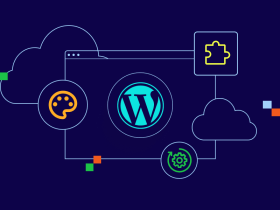In the interconnected global economy, companies face a range of challenges when managing their supply chains. These challenges can include financial instability, ethical concerns, regulatory issues, and more. Each of these risks can affect a company’s operations, reputation, and overall financial health. As businesses expand their supply chains to work with partners and suppliers from all over the world, it becomes more important than ever to carry out due diligence to minimize these risks and for this many turn to Accuristech.com.
What Is Due Diligence?
Before starting any partnership or supplier relationship, businesses must conduct thorough due diligence. This process involves evaluating potential partners or suppliers in several key areas, such as their financial health, operational abilities, reputation, and compliance with relevant regulations. Due diligence is not a one-time task; instead, it is an ongoing process that should be customized to meet the specific needs and goals of each company.
The level of due diligence needed will depend on how risky the potential partner or supplier might be. In certain cases, it may be essential to hire a third-party due diligence service provider to help identify high-risk suppliers or partners. The typical process of due diligence includes three major steps: gathering data, verifying and validating the data, and analyzing the results. This is not something businesses can do once and forget about—it requires regular checks, especially as new information or changes arise over time.
The Role of Data and Analytics
Businesses now have access to a vast amount of data that can support smart decision-making. Companies like Spark-Interfax specialize in using advanced analytics and in-depth databases to provide valuable insights about potential partners and suppliers. They help businesses evaluate things like financial stability, industry trends, and adherence to regulatory standards, enabling companies to make confident and well-informed choices.
Spark-Interfax is a trusted provider of business intelligence and risk management services. Their comprehensive tools and expertise give businesses the necessary resources to evaluate potential partners across various industries and regions, ensuring they have the information needed to make sound decisions.
Compliance-Based vs. Risk-Based Approaches
There are two primary approaches businesses use to manage security in their supply chains: compliance-based and risk-based strategies.
- Compliance-based strategies focus on making sure that a business and its partners follow industry regulations to avoid risks that might threaten both the company and the broader supply chain.
- Risk-based strategies, on the other hand, concentrate on identifying and mitigating threats that could impact the company’s ability to meet regulatory requirements. This method involves assessing the business’s needs, types of data it handles, user access, and potential vulnerabilities to determine what security measures should be implemented.
Both approaches are valuable, and the best strategy for a business may involve a combination of the two.
The Challenges of Compliance
Meeting regulatory requirements is an essential part of managing a supply chain, particularly in sectors like finance, healthcare, and manufacturing, where rules and regulations are strict. Staying up to date with changes in laws and making sure that suppliers and partners are complying with them is key to avoiding potential risks.
But compliance doesn’t only mean following rules—it also involves considering ethical and environmental factors. Ethical violations or environmental harm can severely damage a company’s reputation and can result in legal and financial consequences. As businesses work to build strong and sustainable supply chains, they must integrate ethical considerations into their due diligence process.
Tackling Emerging Risks
Several new threats have recently emerged that could impact supply chains. Here are some of the most pressing ones:
- Economic Instability: The possibility of an economic downturn is a real concern for many businesses. As costs rise and the financial landscape becomes more unpredictable, supply chain leaders need to keep a close eye on their expenses and plan carefully.
- Lack of Visibility: Without full visibility into their supply chains, companies are vulnerable to disruptions. Establishing clear lines of communication and building direct relationships with suppliers, especially those farther down the chain, can help reduce the risk of unforeseen problems.
- Demand Fluctuations: Due to economic uncertainty, businesses face challenges predicting customer demand accurately, leading to inventory shortages or excess stock. Better demand forecasting is crucial to maintaining customer satisfaction and avoiding problems like stockouts.
- Sustainability and Environmental, Social, and Governance (ESG) Concerns: New regulations, such as the Corporate Sustainability Reporting Directive and the Supply Chain Due Diligence Act, are pushing companies to take action on environmental and social issues. Businesses must ensure that their supply chains align with these growing demands for sustainability.
- Cybersecurity Risks: Cyberattacks targeting supply chain networks have increased. Protecting sensitive business data and preventing breaches is a critical part of maintaining a secure and resilient supply chain.
Conclusion
Managing supply chain risks requires a holistic and proactive approach. Companies must invest in comprehensive due diligence, use data and analytics for decision-making, and regularly monitor compliance with regulations. They also need to stay vigilant against emerging risks, such as economic uncertainty, cybersecurity threats, and sustainability challenges. By leveraging the expertise of companies like Spark-Interfax and embracing the latest technology, businesses can mitigate risks, uncover opportunities for growth, and build more resilient supply chains that drive long-term success.










